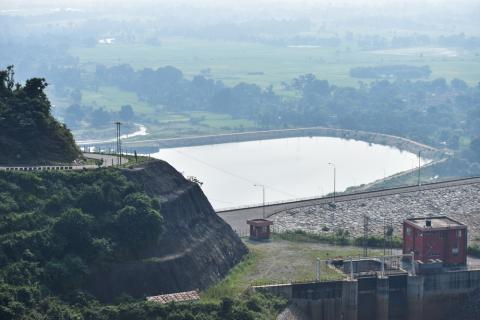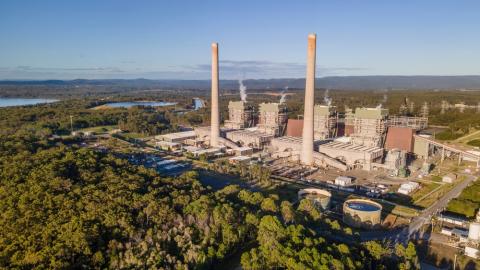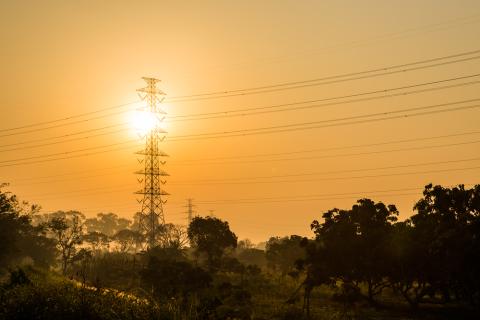IEEFA update: As Marubeni distances itself from coal, other industrial behemoths will follow
SYDNEY — In distancing itself from coal, Japan’s Marubeni Corp., one of the world’s largest developers of coal-fired power plants, is adding to global momentum away from traditional forms of electricity generation.
An announcement earlier this week by the company recognises climate risk as a threat to Marubeni’s business and shareholders and states that—as a result—the company will begin the process of pulling out of coal-fired power generation with a target to halve its coal-fired power capacity by 2030.
Moreover, as a “general principle,” Marubeni says it will no longer enter into any new coal-fired power projects.
This shift is to be implemented alongside an expansion in Marubeni’s renewable energy business as the company seeks to double its ratio of power generated from renewable sources to 20% by 2023.
IEEFA called for just such a decision in a report published in July.
Climate risk to business portfolios is being acknowledged mainstream now, and divestment from coal is gathering remarkable momentum.
OTHER MAJOR ASIAN COAL PLANT DEVELOPERS SUCH AS THE KOREAN GIANTS POSCO AND KEPCO will be having intense boardroom discussions along these lines, and we expect to see other major Asian trading conglomerates follow Marubeni’s lead.
Marubeni rather vaguely states that it might consider participating in ultra-supercritical coal projects in rare cases going forward, but its new policy rules out further development of some of its current projects due to the use of outdated supercritical and subcritical technology.
Expect global ripples from a Japanese multinational’s move.
These include the proposed Morupule B project in Botswana, the Thabametsi project in South Africa, the Nghi Son 2 project in Vietnam, and the Pagbilao extension project in the Philippines.
Even new projects designed to use ultra-supercritical coal power, like the Cirebon expansion in Indonesia, have now been thrown into jeopardy with Marubeni’s move.
Renewables are already at grid parity or are cheaper than new ultra-supercritical coal-fired power, they can come on line five times faster, they have 100% emission reductions relative to “clean coal,” they conform to Paris Agreement carbon-dioxide commitments and can get financing—unlike new coal-fired power plants.
India shows why solar investments are superior to coal, with solar so cheap now that the coal plant development pipeline in that country has declined by 547 gigawatts since 2010, or by enough capacity to power Germany three times over.
MARUBENI’S SHIFT IS THE MOST SIGNIFICANT IN A NUMBER OF JAPANESE energy industry developments this year. Japan is an important exporter of coal-fired power technology, particularly to developing countries that as a result are locked into outdated, polluting power generation for decades. The export of such technology is made possible by concessional finance from Japan’s export credit agencies, without which such projects would often be too expensive for developing countries, especially given the declining cost of renewables.
This past January, however, Japan’s foreign minister, Taro Kono, voiced criticism of the nation’s energy policy by stating, “For too long, Japan has turned a blind eye to global trends, such as the dramatic decrease in the price of renewables and the inevitable shift to decarbonisation in the face of climate change.”
A few weeks later, in February, an energy task force set up to advise the foreign ministry determined that Japan’s current energy policies were damaging its global competitiveness.
“It is obvious that Japan is lagging,” the task force concluded.
And then in May, Japan’s second-largest insurer, Dai-ichi Life Insurance, announced that it would no longer provide financing for overseas coal-fired power projects, marking the first time a Japanese financial institution had committed to restricting coal finance. In July, Nippon Life Insurance, the largest insurer, announced that it would cease financing coal-fired power stations in Japan and overseas.
Japan’s major banks have also started to move.
Sumitomo Mitsui Financial Group has indicated that it may rethink its stance toward coal, a move almost certain to be followed by major Japanese coal financiers Mizuho Financial Group and Mitsubishi UFJ Financial Group.
The Marubeni decision is a turning point, and one that will make coal industry executives shudder and will propel growth in renewable energy markets.
Simon Nicholas is a Sydney-based IEEFA energy analyst. He can be reached at [email protected].
RELATED ITEMS:
IEEFA report: Marubeni’s coal commitments are creating ‘needless reputational and financial risk’
IEEFA update: Indonesia hits the reset button on PLN’s expansion plans
IEEFA Asia: South Korea is behind the curve on power-generation policy













